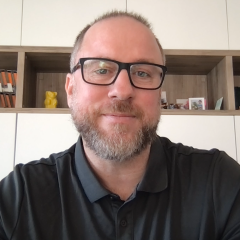I’m proud of the unfathomable work ethic and perseverance “settler” families had to have to make the prairie region an agricultural powerhouse that people around the world rely on.
Canada is consistently honoured as one of the greatest countries in the world in multiple international measures, including quality of life.
So we as settlers and indigenous peoples working together have unquestionably got a few things right.
However, the indigenous peoples’ experience and opportunities were not the same as Canada’s settler ancestors because many Canadian laws were designed to destroy indigenous cultures by outlawing their ceremonies and killing their languages.
Read Also

Proactive approach best bet with looming catastrophes
The Pan-Canadian Action Plan on African swine fever has been developed to avoid the worst case scenario — a total loss ofmarket access.
There is an urgency to address these past injustices, as well as the injustice that these peoples still face, because Canada’s relationship with the indigenous peoples is our country’s greatest failure.
But what should an improved relationship look like?
The elected council of the Wet’suwet’en First Nation is in favour of the Coastal GasLink pipeline, and it says it was not only consulted for the project but it advocated for it from the start.
The people trying to #shutdownCanada because the Wet’suwet’en hereditary chiefs’ want them to “dig in” are actually oppressing the rights of the Wet’suwet’en people.
On March 1 government officials and Wet’suwet’en hereditary chiefs announced they have reached a tentative agreement on indigenous rights and title and the pipeline already under construction.
The agreement had not been made public by press time so it’s unknown if it undermines the democratic power of Wet’suwet’en First Nation’s citizens.
But if these hereditary chiefs continue to work against the interests of the people they are supposed to represent, the Wet’suwet’en people should work with Ottawa and through the courts to make the hereditary chiefs’ positions purely ceremonial because they deserve to have representation that is accountable to them.
Reconciliation with indigenous peoples and Canadian settlers is not just about paying damages in class action lawsuits or updating racist laws; it’s also about changing perspectives and improving personal relationships.
The rail blockades hurt these relationships, so indigenous peoples also need to speak up to show the rest of us the blockaders do not represent them.

















